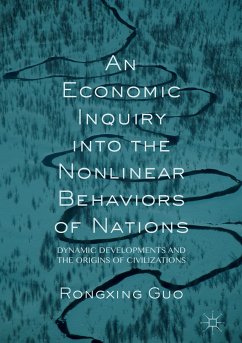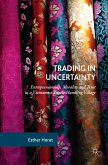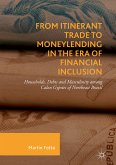This book applies an economic approach to examine the driving forces behind the dynamic behaviors of developing nations. Taking into account initial conditions and environmental and external factors often oversimplified by historians and anthropologists, Guo finds that the rise and fall of civilizations and nations followed an anti-Darwinian process: physical weakness, rather than strength, induced humans to adapt. Cultures facing unfavorable physical and environmental conditions developed complex societies to overcome these challenges, while favorable conditions did not incentivize major economic and cultural change. Over centuries of economic growth and development, nations and civilizations' adaptive behaviors have followed a cyclical path at both the country level and in an international context. This interdisciplinary book incorporates elements of history, anthropology, and development into an astute economic analysis that changes the way we think about the origins and evolutionsof civilizations.
Dieser Download kann aus rechtlichen Gründen nur mit Rechnungsadresse in A, B, BG, CY, CZ, D, DK, EW, E, FIN, F, GR, HR, H, IRL, I, LT, L, LR, M, NL, PL, P, R, S, SLO, SK ausgeliefert werden.









